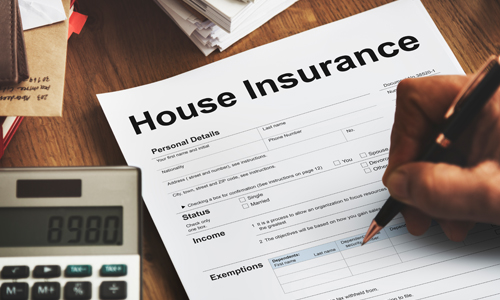Understanding Home Insurance and Property Insurance
Home insurance and property insurance are often used interchangeably, but the two are completely different from each other. While they both offer protection of valuable assets such as property or home, they cover different aspects of your possessions.

- Instant Issuance
- Personalised Expert advice
- Guaranteed Low prices
Home Insurance starting at AED 33/day
What is Home Insurance?
Whether you own a bungalow or an apartment, it is likely that you have invested a significant amount of time, effort, and money to build it. As a result, it is crucial to secure it with the appropriate protection, and this is where home insurance steps into the picture.
Home insurance, also known as homeowner's insurance, is primarily intended for homeowners. It serves as a financial safety net for homeowners in the UAE and protects your property and belongings from various unforeseen disasters such as fires, theft, earthquakes, and other unforeseen events.
It provides financial support to repair or replace your home and belongings, ensuring your peace of mind in case of emergencies from both manmade and natural disasters.
What it Home Insurance Covers:
Building Structural Damage
This type of insurance covers damages to the building structure, including walls, roofs, and other structural parts. Furthermore, many providers cover the loss/damage of fixtures and fittings inside the insured building.
Contents Coverage
With home insurance, your belongings inside the insured building, such as valuables, appliances, and personal items, also get covered against loss or damages.
Additional Coverage Options
Depending upon the extension of protection, many insurance companies in the UAE offer additional benefits through add-ons or riders. So, determining your coverage requirements, you can choose additional coverage options mentioned in your policy document.
What is Property Insurance?
Property insurance is a vast term that encompasses various types of coverage for different types of properties—whether it’s residential, commercial, hospitals, shops, and more. It includes the coverage for both building and content and protects them from several perils, such as theft, burglary, flood, earthquake, etc.
Depending upon the property type, the coverage under property insurance may vary. While most plans include built-in loss/damage coverage for buildings and possessions, many plans also offer liability coverage.
If you have ever wondered, ‘Is property insurance the same as homeowners insurance?’, the answer is no. Homeowners insurance is a specific type of property insurance that shares different characteristics but is designed for residential properties.
What it Covers:
Structural Damage
Property insurance companies promise to compensate for building damage, including roofs, walls, and more.
Content Damage/Loss
In case you lose or damage your valuables due to theft, burglary, flood, or any uncertainties, the financial burden can be compensated by the insurance provider with this type of insurance plan
Home Insurance vs. Property Insurance: Common Exclusions
Home and property insurance features are different from each other, but there are some common exclusions under both policies.
Some of the exclusions are mentioned below:
- War, civil war, or war-like situations
- Terrorism (in some property insurance plans, terrorism is covered)
- Wear and tear
- Radioactivity
- Sonic bangs
- Pollution or contamination
- Defective materials use and faulty workmanship
Note: Exclusions under home and property insurance can be different. It’s advised to carefully review the exclusions under your chosen policy to understand what is not covered.
Why You Should Buy Home and Property Insurance from Policybazaar UAE?
Whatever you own—residential or commercial property—you can safeguard it with the right home and property insurance in the UAE. However, it might be challenging for you to choose the best plan, as there are many providers available with different coverage options. As a renowned online platform, Policybazaar.ae allows you to choose the best policy, comparing coverages, prices, and benefits of different providers.
Moreover, you can avail significant privileges, such as:
- Exceptional customer support
- Claim assistance
- Affordable plans
- Expert advice
- Exciting rewards
Frequently Asked Questions
Home/property insurance is designed to protect your investment from several uncertainties, including theft, burglary, flood, earthquake, and more. It gives you financial coverage against loss/damage to your building and content.
No, it’s not mandatory to have property insurance in the UAE, but it’s advisable to get the right coverage to safeguard your property from uncertainties.
It depends on various factors such as your requirements, scope of coverage, value of property, and more. By comparing the features of both the policies, you can choose the option which is best suited for your needs.
More From Home Insurance
- Recent Articles
- Popular Articles
















